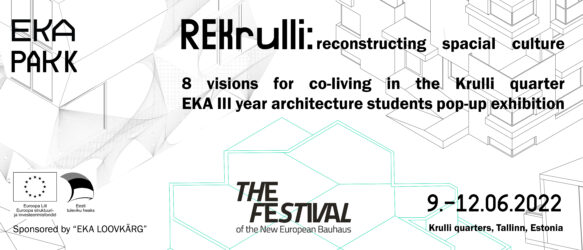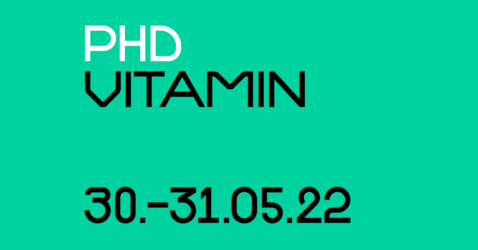Events
31.05.2022
Discussion: “What kind of design writing do we need?”
Sandra Nuut, Urmas Lüüs, Karin Vicente and Jüri Kermik talk about writing about design.
The conversation will be moderated by Taavi Hallimäe.
The discussion will be held in Estonian.
What approaches to design do we need, what do the designer need?
Who is the reader we should keep in mind when writing about design?
What kind of design should we write about at all?
What can be done with design writing, but what the design itself is not always capable of?
Do we need descriptive, evaluative, experiential, or interpretive design criticism?
The event will also introduce the new journal of the Faculty of Design of EKA, Leida the first issue of which will be published in the autumn.
Discussion: “What kind of design writing do we need?”
Tuesday 31 May, 2022
Sandra Nuut, Urmas Lüüs, Karin Vicente and Jüri Kermik talk about writing about design.
The conversation will be moderated by Taavi Hallimäe.
The discussion will be held in Estonian.
What approaches to design do we need, what do the designer need?
Who is the reader we should keep in mind when writing about design?
What kind of design should we write about at all?
What can be done with design writing, but what the design itself is not always capable of?
Do we need descriptive, evaluative, experiential, or interpretive design criticism?
The event will also introduce the new journal of the Faculty of Design of EKA, Leida the first issue of which will be published in the autumn.
04.06.2022
TASE FILM 2022
TASE FILM on June 4 at 5 pm at EKA auditorium (A101) once again.
TASE FILM is an event which happens every year in the context of EKA’s graduate student exhibition, TASE. It offers a programme full of different videos and short films made by students of EKA.
TASE FILM 2022 explores the dream world and reality. The programme consists of two chapters, the first of which takes a look at socially relevant topics such as overconsumption and the tireless construction of shopping malls, and an insight into the work of food couriers. In addition, there are video pieces that look at everyday life around us. In the second part, surreal and abstract videos are presented, including documentaries of performances, dream landscapes and questions of identity.
The programme lasts about 2 hours.
Participating artists:
Aap Kaur Suvi | Potato, Seagulls, Reeds and cars
Camilla Prey | Blaue Stunde
Ditiya Ferdous | Family 1
Ivor Lõõbas | Tradition
Jamie Avis | The Wave
John Quirk | HIDE
Kadri Joala | Autoportree
Karl Joonas Alamaa, Lisette Sivard, Andreas Kübar | ONLY BASIC FASHION SHOW
Kush, Paul Simon, Timothee | TXMALL
Lauri Lest | Moulded
Maria Naulainen | KIHA
Martina Maria Semenzato | ALBAIONES
Moritz Simon | Sand, Stone
Paulina Schroeder, Christian Horner, Nabeel Imtiaz | Looking of Action
Santiago Ordoñez | The station´s seat
Xingpei Shen | Lotus Lantern
Event is free of charge!
Film programme curators: Johanna Kuzmenko, Lígia Fernandes
Location: Estonian Academy of Arts (Põhja pst 7), A-101
TASE FILM 2022
Saturday 04 June, 2022
TASE FILM on June 4 at 5 pm at EKA auditorium (A101) once again.
TASE FILM is an event which happens every year in the context of EKA’s graduate student exhibition, TASE. It offers a programme full of different videos and short films made by students of EKA.
TASE FILM 2022 explores the dream world and reality. The programme consists of two chapters, the first of which takes a look at socially relevant topics such as overconsumption and the tireless construction of shopping malls, and an insight into the work of food couriers. In addition, there are video pieces that look at everyday life around us. In the second part, surreal and abstract videos are presented, including documentaries of performances, dream landscapes and questions of identity.
The programme lasts about 2 hours.
Participating artists:
Aap Kaur Suvi | Potato, Seagulls, Reeds and cars
Camilla Prey | Blaue Stunde
Ditiya Ferdous | Family 1
Ivor Lõõbas | Tradition
Jamie Avis | The Wave
John Quirk | HIDE
Kadri Joala | Autoportree
Karl Joonas Alamaa, Lisette Sivard, Andreas Kübar | ONLY BASIC FASHION SHOW
Kush, Paul Simon, Timothee | TXMALL
Lauri Lest | Moulded
Maria Naulainen | KIHA
Martina Maria Semenzato | ALBAIONES
Moritz Simon | Sand, Stone
Paulina Schroeder, Christian Horner, Nabeel Imtiaz | Looking of Action
Santiago Ordoñez | The station´s seat
Xingpei Shen | Lotus Lantern
Event is free of charge!
Film programme curators: Johanna Kuzmenko, Lígia Fernandes
Location: Estonian Academy of Arts (Põhja pst 7), A-101
30.05.2022
Urban Studies Master’s Thesis Presentation and Defence
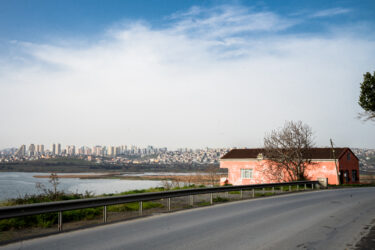
10:00-10:10 Introductions
10:10-11:10 (EEST)
Luisa Fernanda Ayla Torres
Precariousness in the Transformation of Labour: Through Working Class Identity in the city of Turin
Between the 1960s and 1980s, nine million Italians migrated from the agricultural regions of Italy to the productive areas of Turin, shaping the periphery of the city from a rural to an industrial area. The Post-War economic boom provided jobs in the northern plants, giving life to a workers’ hegemony and demographic, social, and cultural transformation. This socioeconomic transformation that affected the organisation of workers, labour, political activity, and society in general, was manifested in two cases. The Palace of Labour, an avant-garde building intended to celebrate the struggles of the working class with an exhibition focused on “man and his progress”, and the case of Mirafiori Sud, a working class neighbourhood symbolising the association of workers. In this way, this thesis explores the identity of the working class in the contemporary city of Turin, where security in neoliberal times no longer needs the scope of the protective techniques of the liberal social State, and as a consequence precarization is now the norm. This is reflected in the transformation of labour manifesting itsel through productive connection with others, where labour is not purely characterised by the increasing capitalization of social life but is effectively reflected with others, producing new social relations.
Examined by Alberto Vanolo (University of Turin) and Aro Velmet (University of Southern California)
11.15-12:15 (EEST)
Mira Samonig
the matter of right-wing populism in Polish LGBT-free zones; towards a with-standing xenourbanism?
Almost a third of Poland had been declared an ‘LGBT-free zone’ in 2020, stigmatizing the LGBTIQP+ community as a threat to Polish identity; this labeling remains a reality for many Polish towns. In this thesis, I am turning towards the concept of the ‘LGBT-free zones’ as a case to investigate the material reality of right-wing populism. I seek to develop a third position to a historical or new materialist understanding in order to investigate such material reality. By that, the ways values find physical expression and thus possibly mobilize oppressive attitudes into ever new futures ahead are traced. It becomes quite evident that the way structures of oppression are advanced and maintained within the public realm exists quite dominantly in everyday narratives. In a bottom-up manner, right-wing populism is advanced on the street; yet, it is by far not perceived by everyone. This marks the entry point for sketching out a possible approach to how the discipline of urbanism could position itself in social struggles. Drawing on Helen Hester’s Xenofeminism, the thesis introduces the concept of xenourbanism describing urbanism based on the conceptual notion of solidarity without sameness. I argue that the notion of xeno- as a prefix attached to urbanism focuses on an inherent transformational potential within the current, rendering a perceived unarming reality into a weapon of contestation and by that suggesting trajectories away from paralyzing no-alternative narratives.
Examined by Piotr Plucienniczak (Warsaw Academy of Fine Arts) and Helen Runting (Secretary)
12:25-13:35 (EEST)
Zahaan Khan
Tourism-Led Gentrification: The Case of Dal Lake in Kashmir
The dissertation explores tourism-led gentrification, its causes and the impact on the communities living in and around the ecologically-sensitive region of Dal Lake in Kashmir. The dissertation employs methodological triangulation using interviews, survey and policy document analysis, as methods. The policy document in question is the Srinagar Master Plan 2035 issued by the Srinagar Development Authority. Analysing the correlation between tourism and gentrification in a conflict-torn region and using displacement as a conceptual lens, the thesis maps the socio-cultural and economic aspects of touristification especially in relation to the everyday lives of the communities. The dissertation employs a two-pronged analytical approach by using two categories – land milieu and water milieu – to foreground the patterns and impact of gentrification in and around the lake. The analysis of the land milieu concerns itself with a detailed exploration into Boulevard, the long promenade along the lake’s periphery. It further discusses holiday rentals and issues of mobility and maps the city’s land-use patterns particularly in relation to expansion along the lake’s periphery. The study of the water milieu, on the other hand, is an exploration into the historical houseboats of Kashmir and the local hanji (or haenz) community; foregrounding the issues concerning policies of renovation and relocation of
houseboats. The dissertation also delves into the government’s land use and tourism-driven development plans around the lake, especially post abrogation of
Article 370 of the Indian constitution that gave ‘special status’ to the region.
Examined by Dr Mathew Varghese (Mahatma Gandhi University) and Karlis Ratnieks (EKA)
13:35-14:25 Lunch
14:25-15:25 (EEST)
Egemen Mercanlioglu
THE WORK OF A RIFT: Kanal İstanbul and Turkey’s Authoritarian Neoliberalism
Turkey under the leadership of Recep Tayyip Erdoğan and his Adalet ve Kalkınma Partisi was touted as a paragon of neoliberalism and a burgeoning democracy until the late-2000s. Two decades later, the positive portrayals of the country have decidedly shifted. Turkey is now considered to have retreated from neoliberalism; an emblematic case of authoritarian turn. However, this thesis rethinks authoritarian governance as the kernel of the Erdoğan-led AKP’s brand of neoliberalism. It does so by focusing on a to-be-built urban megaproject, Kanal İstanbul—a 45-kilometer long man-made waterway, aiming to locate İstanbul as a signature node in the global web of flooding money and commodities. Using the megaproject as a lens, the thesis shows how neoliberal reforms in the early-2000s have propelled İstanbul and the construction sector as financial growth generating engines of the country. Subsequently, these
reforms have buttressed contemporary coercive governance structure and a megaproject spree in the city. Finally, the thesis briefly explores a recent but growing counter-hegemonic contestation against Erdoğan and his Kanal İstanbul, posed by the mayor of İstanbul. The thesis does not give a final verdict but explores whether or not this challenge proposes an alternative to authoritarian neoliberalism.
Examined by Dr Cemal Burak Tansel (Newcastle University) and Mattias Malk (EKA)
15:30-16:30 (EEST)
Deniz Taskin
Architecture as a Practice of Care: Case Studies of Women’s Care-Based Architecture Practices
Care as a concept is becoming more crucial in architecture and urban practice as a result of
the COVID-19 pandemic’s unpredictable spatial, social, and political circumstances. The
attitude of urbanized capitalism towards contemporary urban problems and its refusal to
acknowledge the urgency of the climate crisis result in uncaring urban practices. The
important position of architecture as a measure for assessing our place in the ecosystem and
the role of architects and related disciplines in determining with whom we live together
requires them to reconsider the values and priorities that drive their practice.
This thesis unpacks care as a concept and ethical practice through a feminist lens by
focusing on the notion of “configuration of care,” which refers to how architects express their
ethical and political objectives by arranging human and nonhuman materials to achieve
caring relationships in urban spaces. (Suchman 2012). It does so by focusing on the practices
of women from the field of architecture and related disciplines whose contemporary practice
foregrounds care and employs feminist care ethics: Careful Mapping by Spolka, Performing
Architherapy by Erika Henriksson, Mutfak (Kitchen) by Merve Bedir, The Blind Alley by
Elin Strand Ruin. The thesis explores certain commonalities and recurring patterns of thought
in how the practitioners’ encounter and apply feminist care ethics. Finally, it discusses the
potential and limits of incorporating feminist care ethics into architecture practice, as well as
the potential for architectural practice to become care practice.
Examined by Agata Marzecova (EKA) and Henriette Steiner (University of Copenhagen)
Urban Studies Master’s Thesis Presentation and Defence
Monday 30 May, 2022

10:00-10:10 Introductions
10:10-11:10 (EEST)
Luisa Fernanda Ayla Torres
Precariousness in the Transformation of Labour: Through Working Class Identity in the city of Turin
Between the 1960s and 1980s, nine million Italians migrated from the agricultural regions of Italy to the productive areas of Turin, shaping the periphery of the city from a rural to an industrial area. The Post-War economic boom provided jobs in the northern plants, giving life to a workers’ hegemony and demographic, social, and cultural transformation. This socioeconomic transformation that affected the organisation of workers, labour, political activity, and society in general, was manifested in two cases. The Palace of Labour, an avant-garde building intended to celebrate the struggles of the working class with an exhibition focused on “man and his progress”, and the case of Mirafiori Sud, a working class neighbourhood symbolising the association of workers. In this way, this thesis explores the identity of the working class in the contemporary city of Turin, where security in neoliberal times no longer needs the scope of the protective techniques of the liberal social State, and as a consequence precarization is now the norm. This is reflected in the transformation of labour manifesting itsel through productive connection with others, where labour is not purely characterised by the increasing capitalization of social life but is effectively reflected with others, producing new social relations.
Examined by Alberto Vanolo (University of Turin) and Aro Velmet (University of Southern California)
11.15-12:15 (EEST)
Mira Samonig
the matter of right-wing populism in Polish LGBT-free zones; towards a with-standing xenourbanism?
Almost a third of Poland had been declared an ‘LGBT-free zone’ in 2020, stigmatizing the LGBTIQP+ community as a threat to Polish identity; this labeling remains a reality for many Polish towns. In this thesis, I am turning towards the concept of the ‘LGBT-free zones’ as a case to investigate the material reality of right-wing populism. I seek to develop a third position to a historical or new materialist understanding in order to investigate such material reality. By that, the ways values find physical expression and thus possibly mobilize oppressive attitudes into ever new futures ahead are traced. It becomes quite evident that the way structures of oppression are advanced and maintained within the public realm exists quite dominantly in everyday narratives. In a bottom-up manner, right-wing populism is advanced on the street; yet, it is by far not perceived by everyone. This marks the entry point for sketching out a possible approach to how the discipline of urbanism could position itself in social struggles. Drawing on Helen Hester’s Xenofeminism, the thesis introduces the concept of xenourbanism describing urbanism based on the conceptual notion of solidarity without sameness. I argue that the notion of xeno- as a prefix attached to urbanism focuses on an inherent transformational potential within the current, rendering a perceived unarming reality into a weapon of contestation and by that suggesting trajectories away from paralyzing no-alternative narratives.
Examined by Piotr Plucienniczak (Warsaw Academy of Fine Arts) and Helen Runting (Secretary)
12:25-13:35 (EEST)
Zahaan Khan
Tourism-Led Gentrification: The Case of Dal Lake in Kashmir
The dissertation explores tourism-led gentrification, its causes and the impact on the communities living in and around the ecologically-sensitive region of Dal Lake in Kashmir. The dissertation employs methodological triangulation using interviews, survey and policy document analysis, as methods. The policy document in question is the Srinagar Master Plan 2035 issued by the Srinagar Development Authority. Analysing the correlation between tourism and gentrification in a conflict-torn region and using displacement as a conceptual lens, the thesis maps the socio-cultural and economic aspects of touristification especially in relation to the everyday lives of the communities. The dissertation employs a two-pronged analytical approach by using two categories – land milieu and water milieu – to foreground the patterns and impact of gentrification in and around the lake. The analysis of the land milieu concerns itself with a detailed exploration into Boulevard, the long promenade along the lake’s periphery. It further discusses holiday rentals and issues of mobility and maps the city’s land-use patterns particularly in relation to expansion along the lake’s periphery. The study of the water milieu, on the other hand, is an exploration into the historical houseboats of Kashmir and the local hanji (or haenz) community; foregrounding the issues concerning policies of renovation and relocation of
houseboats. The dissertation also delves into the government’s land use and tourism-driven development plans around the lake, especially post abrogation of
Article 370 of the Indian constitution that gave ‘special status’ to the region.
Examined by Dr Mathew Varghese (Mahatma Gandhi University) and Karlis Ratnieks (EKA)
13:35-14:25 Lunch
14:25-15:25 (EEST)
Egemen Mercanlioglu
THE WORK OF A RIFT: Kanal İstanbul and Turkey’s Authoritarian Neoliberalism
Turkey under the leadership of Recep Tayyip Erdoğan and his Adalet ve Kalkınma Partisi was touted as a paragon of neoliberalism and a burgeoning democracy until the late-2000s. Two decades later, the positive portrayals of the country have decidedly shifted. Turkey is now considered to have retreated from neoliberalism; an emblematic case of authoritarian turn. However, this thesis rethinks authoritarian governance as the kernel of the Erdoğan-led AKP’s brand of neoliberalism. It does so by focusing on a to-be-built urban megaproject, Kanal İstanbul—a 45-kilometer long man-made waterway, aiming to locate İstanbul as a signature node in the global web of flooding money and commodities. Using the megaproject as a lens, the thesis shows how neoliberal reforms in the early-2000s have propelled İstanbul and the construction sector as financial growth generating engines of the country. Subsequently, these
reforms have buttressed contemporary coercive governance structure and a megaproject spree in the city. Finally, the thesis briefly explores a recent but growing counter-hegemonic contestation against Erdoğan and his Kanal İstanbul, posed by the mayor of İstanbul. The thesis does not give a final verdict but explores whether or not this challenge proposes an alternative to authoritarian neoliberalism.
Examined by Dr Cemal Burak Tansel (Newcastle University) and Mattias Malk (EKA)
15:30-16:30 (EEST)
Deniz Taskin
Architecture as a Practice of Care: Case Studies of Women’s Care-Based Architecture Practices
Care as a concept is becoming more crucial in architecture and urban practice as a result of
the COVID-19 pandemic’s unpredictable spatial, social, and political circumstances. The
attitude of urbanized capitalism towards contemporary urban problems and its refusal to
acknowledge the urgency of the climate crisis result in uncaring urban practices. The
important position of architecture as a measure for assessing our place in the ecosystem and
the role of architects and related disciplines in determining with whom we live together
requires them to reconsider the values and priorities that drive their practice.
This thesis unpacks care as a concept and ethical practice through a feminist lens by
focusing on the notion of “configuration of care,” which refers to how architects express their
ethical and political objectives by arranging human and nonhuman materials to achieve
caring relationships in urban spaces. (Suchman 2012). It does so by focusing on the practices
of women from the field of architecture and related disciplines whose contemporary practice
foregrounds care and employs feminist care ethics: Careful Mapping by Spolka, Performing
Architherapy by Erika Henriksson, Mutfak (Kitchen) by Merve Bedir, The Blind Alley by
Elin Strand Ruin. The thesis explores certain commonalities and recurring patterns of thought
in how the practitioners’ encounter and apply feminist care ethics. Finally, it discusses the
potential and limits of incorporating feminist care ethics into architecture practice, as well as
the potential for architectural practice to become care practice.
Examined by Agata Marzecova (EKA) and Henriette Steiner (University of Copenhagen)
26.05.2022
EXTENSION: an intervention to the space in Skoone Bastioni
Artists: Brit Kikas, Jakub Tulinger, Nora Schmelter, Viktor Kudriashov
Curator: Katarina Nyyssönen
Graphic Design: Oliver Long
On Thursday, May 26 at 6 pm EKA students invite you to join with a critical run, we take over and question the existence of a man-made mound of soil and look at what such a natural buffer zone in the middle of the city symbolizes. A critical run is an art format created by Thierry Geoffroy/Colonel and will be used to open a discussion, to reflect and debate during the run. We will end the run to enter an exhibition platform where traces already exist and can be actualized. To what extent of interaction do we see this platform still as a part of nature? This exhibit brings into interest human connections between nature and artificial.
“People’s natural need to spend time in nature has not disappeared: instead of being amused, they like to chill…” – Juhan Hint, Sirp 2019
EXTENSION
Skoone bastion
Do you think differently when you run?
Is reconstruction constant?
Human shelter, a form of forgotten space?
Can we give structure to nature?
Do you leave traces?
Will traces become permanent?
Or permanent become nature?
Are we creating our own models of nature by leaving traces?
Do we perceive an intervention as artificial?
Or is it becoming part of the existing ecosystem?
With losing its functionality?
Artificial nature, a created image excluding reality?
A long forgotten green space in the middle of the city, shows the mankinds attitude towards the environment and what surrounds us. Even the protection that the underground tunnels have provided in the past has been forgotten, despite the current state of the world.
Start: Critical Run, 26.05.2022 at 18:00 (Meeting point in front of EKA)
End: Skoone bastioni, Rannamäe tee, Entrance to the tunnels
Supported by: Estonian Academy of Arts, Sveta Bar
Additional information:
Katarina Nyyssönen
katarina.nyyssonen@artun.ee
+372 53021657
EXTENSION: an intervention to the space in Skoone Bastioni
Thursday 26 May, 2022
Artists: Brit Kikas, Jakub Tulinger, Nora Schmelter, Viktor Kudriashov
Curator: Katarina Nyyssönen
Graphic Design: Oliver Long
On Thursday, May 26 at 6 pm EKA students invite you to join with a critical run, we take over and question the existence of a man-made mound of soil and look at what such a natural buffer zone in the middle of the city symbolizes. A critical run is an art format created by Thierry Geoffroy/Colonel and will be used to open a discussion, to reflect and debate during the run. We will end the run to enter an exhibition platform where traces already exist and can be actualized. To what extent of interaction do we see this platform still as a part of nature? This exhibit brings into interest human connections between nature and artificial.
“People’s natural need to spend time in nature has not disappeared: instead of being amused, they like to chill…” – Juhan Hint, Sirp 2019
EXTENSION
Skoone bastion
Do you think differently when you run?
Is reconstruction constant?
Human shelter, a form of forgotten space?
Can we give structure to nature?
Do you leave traces?
Will traces become permanent?
Or permanent become nature?
Are we creating our own models of nature by leaving traces?
Do we perceive an intervention as artificial?
Or is it becoming part of the existing ecosystem?
With losing its functionality?
Artificial nature, a created image excluding reality?
A long forgotten green space in the middle of the city, shows the mankinds attitude towards the environment and what surrounds us. Even the protection that the underground tunnels have provided in the past has been forgotten, despite the current state of the world.
Start: Critical Run, 26.05.2022 at 18:00 (Meeting point in front of EKA)
End: Skoone bastioni, Rannamäe tee, Entrance to the tunnels
Supported by: Estonian Academy of Arts, Sveta Bar
Additional information:
Katarina Nyyssönen
katarina.nyyssonen@artun.ee
+372 53021657
06.06.2022 — 07.06.2022
Portfolio Cafe 2022
June 6-7 at EKA Library
Portfolio Café is structured around one on one meetings that take place between local and international fine arts field professionals and EKA BA and MA level students. Each meeting takes place about 45 minutes. During Portfolio Café sessions students introduce themselves and their work and experts share their observations, provide recommendations, ask questions etc. After the first scheduled conversation student moves on to the next selected expert they have signed up for.
All Portfolio Café meetings are in English.
Registration: Portfolio Café invites all fine art students from the BA and MA level to participate. The spots are limited and participants will be chosen according to the provided portfolios.
To apply, please fill out this registration form before June 3 and upload your portfolio.
EXPERTS
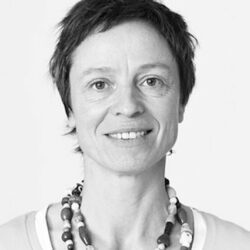
Ulla Marquardt is a German artist and educator whose work revolves around people’s aspirations and determination to leave behind often dire working and living conditions and come a little closer to their hopes and dreams. In her photographic series and her mostly site-specific video installations, the different parts play together to form a complex visual experience that enables a dialogue – both within the different parts of the installation and between the artwork and the viewer. The second aspect in her works is the exploration of the phenomena of beauty and transience in nature.
www.ulla-marquardt.com
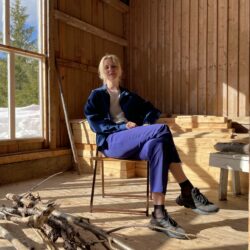
Lilian Hiob (b. 1991) is a curator, gallerist and art agent. She is a manager at Temnikova & Kasela gallery, also a founder of an independent gallery located in her basement, Hoib gallery. Together with Siim Preiman she is hosting a monthly radio show Vitamin K at IDA radio, dedicated to contemporary art.
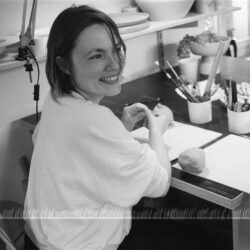
Anna Zača (b. 1984) – curator, programmer and project manager in the field of animated and short film. Anna studied Art History and Theory in Latvia and Animation in Estonia. She has been the creative director of 2ANNAS ISFF and one of the founders of Riga International Film Festival, in 2015 she founded SHORT RIGA a section dedicated to short and artist film within Riga International Film Festival. Since 2016 Anna has been the Head of the Latvian Animation Association and since 2018 she is one of the Board Members at the European Animation Awards.
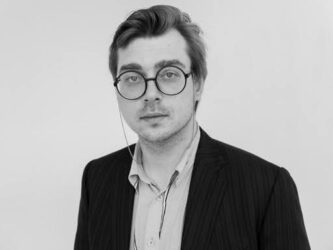
Audrius Pocius (b. 1991) is a curator and a philosopher currently based in Vilnius. In his curatorial practices he is mainly focused on conceptual and performative aspects of art and their potency for social and cultural critique. Audrius has been a curator and educator at CAC Vilnius up until he co-founded Swallow space for contemporary art together with his co-conspirators. He is also lecturing on various topics related to philosophy, aesthetics and contemporary culture at Vilnius University, Vilnius Academy of Art and Lithuanian Academy of Music and Theatre.
www.swallow.lt
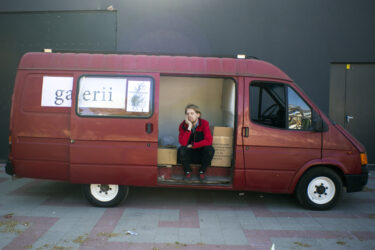
Siim Preiman (b. 1992) works as a curator at Tallinn Art Hall and runs a mobile art platform gallery gallery. He is characterised by a strong awareness of the environment and a desire for a more equal society. Preiman’s curatorial projects sprout from the personal and, with the help of co-creators, grow into collective platforms that address various generational pain points. The exhibitions he has convened have addressed among other issues the expanded sense of self, changing Eastern Europeanism, the ethics of art-making and the national landscape. More recently, he has been reflecting on hospitality, gender, violence and living as a whole.
Major projects include the group exhibition “Mändfulness” at Tallinn City Gallery (2021), the temporary project space March 1 in Tallinn Old Town (2021), the group exhibition “The Art of Being Good” at Tallinn Art Hall (2019) and the durability project/mobile platform gallery gallery (2016 – …).
www.galeriigalerii.ee
Portfolio Café is supported by the European Regional Development Fund EKA LOOVKÄRG (2014-2020.4.01.20-0288).
Portfolio Cafe 2022
Monday 06 June, 2022 — Tuesday 07 June, 2022
June 6-7 at EKA Library
Portfolio Café is structured around one on one meetings that take place between local and international fine arts field professionals and EKA BA and MA level students. Each meeting takes place about 45 minutes. During Portfolio Café sessions students introduce themselves and their work and experts share their observations, provide recommendations, ask questions etc. After the first scheduled conversation student moves on to the next selected expert they have signed up for.
All Portfolio Café meetings are in English.
Registration: Portfolio Café invites all fine art students from the BA and MA level to participate. The spots are limited and participants will be chosen according to the provided portfolios.
To apply, please fill out this registration form before June 3 and upload your portfolio.
EXPERTS

Ulla Marquardt is a German artist and educator whose work revolves around people’s aspirations and determination to leave behind often dire working and living conditions and come a little closer to their hopes and dreams. In her photographic series and her mostly site-specific video installations, the different parts play together to form a complex visual experience that enables a dialogue – both within the different parts of the installation and between the artwork and the viewer. The second aspect in her works is the exploration of the phenomena of beauty and transience in nature.
www.ulla-marquardt.com

Lilian Hiob (b. 1991) is a curator, gallerist and art agent. She is a manager at Temnikova & Kasela gallery, also a founder of an independent gallery located in her basement, Hoib gallery. Together with Siim Preiman she is hosting a monthly radio show Vitamin K at IDA radio, dedicated to contemporary art.

Anna Zača (b. 1984) – curator, programmer and project manager in the field of animated and short film. Anna studied Art History and Theory in Latvia and Animation in Estonia. She has been the creative director of 2ANNAS ISFF and one of the founders of Riga International Film Festival, in 2015 she founded SHORT RIGA a section dedicated to short and artist film within Riga International Film Festival. Since 2016 Anna has been the Head of the Latvian Animation Association and since 2018 she is one of the Board Members at the European Animation Awards.

Audrius Pocius (b. 1991) is a curator and a philosopher currently based in Vilnius. In his curatorial practices he is mainly focused on conceptual and performative aspects of art and their potency for social and cultural critique. Audrius has been a curator and educator at CAC Vilnius up until he co-founded Swallow space for contemporary art together with his co-conspirators. He is also lecturing on various topics related to philosophy, aesthetics and contemporary culture at Vilnius University, Vilnius Academy of Art and Lithuanian Academy of Music and Theatre.
www.swallow.lt

Siim Preiman (b. 1992) works as a curator at Tallinn Art Hall and runs a mobile art platform gallery gallery. He is characterised by a strong awareness of the environment and a desire for a more equal society. Preiman’s curatorial projects sprout from the personal and, with the help of co-creators, grow into collective platforms that address various generational pain points. The exhibitions he has convened have addressed among other issues the expanded sense of self, changing Eastern Europeanism, the ethics of art-making and the national landscape. More recently, he has been reflecting on hospitality, gender, violence and living as a whole.
Major projects include the group exhibition “Mändfulness” at Tallinn City Gallery (2021), the temporary project space March 1 in Tallinn Old Town (2021), the group exhibition “The Art of Being Good” at Tallinn Art Hall (2019) and the durability project/mobile platform gallery gallery (2016 – …).
www.galeriigalerii.ee
Portfolio Café is supported by the European Regional Development Fund EKA LOOVKÄRG (2014-2020.4.01.20-0288).
21.06.2022
EKA Graduation Ceremonies 2022
This year’s Graduation Ceremonies will be held on June 21th in the EKA gallery and main hall (room A101, Põhja puiestee 7, Tallinn).
11am – graduates of Faculties of Design and Art Culture
3pm – graduates of Faculties of Architecture and Fine Art
NB! Dear graduate, please come to the EKA gallery 15 minutes earlier, so we can lead you to your place. Guests can sit in the hall or watch the ceremonies in the lobby on the screens or online on EKA TV.
EKA Graduation Ceremonies 2022
Tuesday 21 June, 2022
This year’s Graduation Ceremonies will be held on June 21th in the EKA gallery and main hall (room A101, Põhja puiestee 7, Tallinn).
11am – graduates of Faculties of Design and Art Culture
3pm – graduates of Faculties of Architecture and Fine Art
NB! Dear graduate, please come to the EKA gallery 15 minutes earlier, so we can lead you to your place. Guests can sit in the hall or watch the ceremonies in the lobby on the screens or online on EKA TV.
27.05.2022 — 09.06.2022
EKA Grad Show ’22
TASE’22
Estonian Academy of Arts Grad Show
28.05–09.06, open daily 12–6 pm
Opening: 27.05, 4pm @EKA
Exhibition locations:
EKA, Põhja pst 7
Vent Space, Vabaduse väljak 6-8
ARS Art Factory, Pärnu mnt 154
Rotermanni kvartal, Rotermanni 7
TASE is the annual graduation show of the Estonian Academy of Arts. It presents the final projects of Fine Arts, Architecture, Design, and Art and Culture faculties’ master’s students, along with the final artworks by Fine Arts and Design faculties’ bachelor’s students. The opening of the main exhibition and TASE’22 webpage tase.artun.ee takes place on May 27th at 4 pm at EKA!
Most of the works are exhibited at EKA on all five floors and including EKA Gallery and Billboard Gallery. Additionally, you can visit the exhibition at ARS Art Factory (Project Space, Showroom and room 112), Vent Space, Rotermanni 7, Lai 31, Kanuti Gildi Hall Cellar, Kadriorg Art Museum, Poordi 3 and Loewenschede tower on Kooli str 7. See more info on the programme.
tase.artun.ee opens simultaneously with the main exhibition on May 27th!
In addition to the works at the main exhibition, written theses by PhD and Art and Culture graduates and grad works from the rest of the BA graduates will be presented on tase.artun.ee. Last year’s TASE page can be found at tase20.artun.ee and tase21.artun.ee.
Young Artist Award and Young Applied Artist Award
The Young Artist Award and Young Applied Artist Award winners at the master’s and bachelor’s levels will be announced at the opening of TASE main exhibition. The prizes are each 1500€.
Young Artist Award winner at the master’s level will be chosen from Contemporary Art graduation works and at the bachelor’s level from the Graphic Art, Installation and Sculpture Painting, and Photography graduation works. The master’s prize includes a solo exhibition at the Hobusepea or Draakon gallery in 2023. This year’s jury members are art professionals Elin Kard, Marko Mäetamm, Aleksander Zahharov, Karolin Poska (only MA), Sigrid Viir and Maarin Ektermann.
Young Applied Artist Award winners will be selected from the Design and Crafts graduation works. The master level prize includes a solo exhibition at the HOP Gallery. The jury members are Maria Valdma, Ketli Tiitsar, Gregor Taul, Keiu Krikmann and Tiina Sarapu.
PROGRAMME
Exhibition opening ceremony
27.05 at 16.00, EKA lobby
Theses defences
30.05–15.06, www.artun.ee/kaitsmised
TASE FILM
04.06 at 17.00, A101
Scenography bachelors’ works exhibition “Kujundliku Mõtte Labor”
Estookin, Kristel Zimmer, Anita Kremm, Linda Mai Kari, Liisamari Viik, supervisor Ene-Liis Semper
28.05–07.06, open every day at 12.00–18.00, opening on 27.05 at 18.00
Lai 31, II floor
Graphic Design master’s graduation works “Silence After Early Hours”
Mucho Mustachio (Alejandro Bellón Ample), Louise Borinski, Daddy Breezy (Aleksandrs Breže), Energy Star (Paula Buškevica), Reese (Björn Giesecke), Tropaasi (Otso Peräsaari), Foxy (Diandra Rebase), miss S (Katarina Sarap)
04–11.06 at 13.00–19.00
Opening 03.06 at 18.00, finissage 11.06 at 21.00
Kanuti Guild Hall Cellar, Pühavaimu 5
www.silenceafterearlyhours.eka-gd-ma.ee
“Piiritu”, curator Nele Ambos
Cultural Heritage and Conservation master’s graduation work
Lilly Walther
23.02–29.05, Wed, Fri-Sun at 11.00–18.00, Thu at 11.00–20.00
Tartu Art Museum, Raekoja plats 18, Tartu
“ars viva 2022 – tajuvälja agendid”, curator Maria Helen Känd
Curator studies master’s graduation work
Tamina Amadyar, Laura Põld, Lewis Hammond, Jānis Dzirnieks, Anastasia Sosunova, Mooni Perry
09.04–07.09, Wed-Sun at 12.00–18.00
Kai kunstikeskus, Peetri 12
“Visible Storage Gallery for the Sculpture Collection”, curator Maria Väinsar
Department of Cultural Heritage and Conservation, master’s thesis
18.05.2022–31.12.2024
Tue, Thu-Sun at 10.00–18.00, Wed at 10.00–20.00
Kadriorg Art Museum, Weizenbergi 37, 10127 Tallinn
Olev Kuma “Transmission”
Painting bachelor’s graduation work
28.05–09.06, every day at 11.00–19.00
Poordi 3
Caroline Pajusaar “Inferno”
Bachelor’s thesis in Graphics
27.05–10.06, Mon-Fri at 11.00–18.00
Loewenschede tower, Kooli 7 (entrance from the park, last floor)
SATELLITE PROGRAMME
Open Academy exhibition “Maalikunsti A, B, C… ja Z lõputööde näitus”
Kaia Hommik, Ivo Kuldmäe, Anne-Mari Rannamäe, Jana Koel, Gerli Pesor, Andri Lõhek, Mari-Helen Vili, Kristine-Kristi Kasak, Ülle Soitu, Astrid Mägi, Mari Annuka, Raili Moldov
20.05–28.05, Wed-Fri at 12.00–18.00, Sat at 12.00–16.00, opening 19.05 at 18.00
Artdepoo gallery, Jahu 12-213
Jewellery and Blacksmithing II year student exhibition “NIHE”
Anna-Maria Vaino, Ardo Teesalu, Bianca Triinu Toots, Hugo Toss, Margus Elizarov, Villu Mustkivi, Visa Eino Eduard Nurmi, Ellen Axberg, Camilla Prey
20.05–02.06 at 12.00–20.00, opening 19.05 at 18.00
Uus 4
Photoart Academy exhibition “Ruumis”
Marcus Kallavus, Marta Khrshanovskaya, Silvi Kiin, Elias Kuulmann, Kristi Leps, Margus Metsaäär, Jaanus Muruõis, Nelli Pello, Kärt Petser, Annika Vihmann
Open 24/7, opening 07.06 at 18.00,
Telliskivi 64
Head organiser: Pire Sova
Assistant: Dana Lorên Vares
Exhibition design: Brigit Arop, Katarina Ild, Anabel Ainso
Communication: Solveig Jahnke, Andres Lõo, Maarja Pabut
Graphic design: Birgita Siim, Agnes Isabelle Veevo, Aaro Veiderpass
Web coordinator: Kert Väljak
TASE FILM and opening event: Johanna Kuzmenko, Ligia Fernandes
Supported by Eesti Kultuurkapital, Kasevetekohin, Mistra, AkzoNobel, BigBerry
EKA Grad Show ’22
Friday 27 May, 2022 — Thursday 09 June, 2022
TASE’22
Estonian Academy of Arts Grad Show
28.05–09.06, open daily 12–6 pm
Opening: 27.05, 4pm @EKA
Exhibition locations:
EKA, Põhja pst 7
Vent Space, Vabaduse väljak 6-8
ARS Art Factory, Pärnu mnt 154
Rotermanni kvartal, Rotermanni 7
TASE is the annual graduation show of the Estonian Academy of Arts. It presents the final projects of Fine Arts, Architecture, Design, and Art and Culture faculties’ master’s students, along with the final artworks by Fine Arts and Design faculties’ bachelor’s students. The opening of the main exhibition and TASE’22 webpage tase.artun.ee takes place on May 27th at 4 pm at EKA!
Most of the works are exhibited at EKA on all five floors and including EKA Gallery and Billboard Gallery. Additionally, you can visit the exhibition at ARS Art Factory (Project Space, Showroom and room 112), Vent Space, Rotermanni 7, Lai 31, Kanuti Gildi Hall Cellar, Kadriorg Art Museum, Poordi 3 and Loewenschede tower on Kooli str 7. See more info on the programme.
tase.artun.ee opens simultaneously with the main exhibition on May 27th!
In addition to the works at the main exhibition, written theses by PhD and Art and Culture graduates and grad works from the rest of the BA graduates will be presented on tase.artun.ee. Last year’s TASE page can be found at tase20.artun.ee and tase21.artun.ee.
Young Artist Award and Young Applied Artist Award
The Young Artist Award and Young Applied Artist Award winners at the master’s and bachelor’s levels will be announced at the opening of TASE main exhibition. The prizes are each 1500€.
Young Artist Award winner at the master’s level will be chosen from Contemporary Art graduation works and at the bachelor’s level from the Graphic Art, Installation and Sculpture Painting, and Photography graduation works. The master’s prize includes a solo exhibition at the Hobusepea or Draakon gallery in 2023. This year’s jury members are art professionals Elin Kard, Marko Mäetamm, Aleksander Zahharov, Karolin Poska (only MA), Sigrid Viir and Maarin Ektermann.
Young Applied Artist Award winners will be selected from the Design and Crafts graduation works. The master level prize includes a solo exhibition at the HOP Gallery. The jury members are Maria Valdma, Ketli Tiitsar, Gregor Taul, Keiu Krikmann and Tiina Sarapu.
PROGRAMME
Exhibition opening ceremony
27.05 at 16.00, EKA lobby
Theses defences
30.05–15.06, www.artun.ee/kaitsmised
TASE FILM
04.06 at 17.00, A101
Scenography bachelors’ works exhibition “Kujundliku Mõtte Labor”
Estookin, Kristel Zimmer, Anita Kremm, Linda Mai Kari, Liisamari Viik, supervisor Ene-Liis Semper
28.05–07.06, open every day at 12.00–18.00, opening on 27.05 at 18.00
Lai 31, II floor
Graphic Design master’s graduation works “Silence After Early Hours”
Mucho Mustachio (Alejandro Bellón Ample), Louise Borinski, Daddy Breezy (Aleksandrs Breže), Energy Star (Paula Buškevica), Reese (Björn Giesecke), Tropaasi (Otso Peräsaari), Foxy (Diandra Rebase), miss S (Katarina Sarap)
04–11.06 at 13.00–19.00
Opening 03.06 at 18.00, finissage 11.06 at 21.00
Kanuti Guild Hall Cellar, Pühavaimu 5
www.silenceafterearlyhours.eka-gd-ma.ee
“Piiritu”, curator Nele Ambos
Cultural Heritage and Conservation master’s graduation work
Lilly Walther
23.02–29.05, Wed, Fri-Sun at 11.00–18.00, Thu at 11.00–20.00
Tartu Art Museum, Raekoja plats 18, Tartu
“ars viva 2022 – tajuvälja agendid”, curator Maria Helen Känd
Curator studies master’s graduation work
Tamina Amadyar, Laura Põld, Lewis Hammond, Jānis Dzirnieks, Anastasia Sosunova, Mooni Perry
09.04–07.09, Wed-Sun at 12.00–18.00
Kai kunstikeskus, Peetri 12
“Visible Storage Gallery for the Sculpture Collection”, curator Maria Väinsar
Department of Cultural Heritage and Conservation, master’s thesis
18.05.2022–31.12.2024
Tue, Thu-Sun at 10.00–18.00, Wed at 10.00–20.00
Kadriorg Art Museum, Weizenbergi 37, 10127 Tallinn
Olev Kuma “Transmission”
Painting bachelor’s graduation work
28.05–09.06, every day at 11.00–19.00
Poordi 3
Caroline Pajusaar “Inferno”
Bachelor’s thesis in Graphics
27.05–10.06, Mon-Fri at 11.00–18.00
Loewenschede tower, Kooli 7 (entrance from the park, last floor)
SATELLITE PROGRAMME
Open Academy exhibition “Maalikunsti A, B, C… ja Z lõputööde näitus”
Kaia Hommik, Ivo Kuldmäe, Anne-Mari Rannamäe, Jana Koel, Gerli Pesor, Andri Lõhek, Mari-Helen Vili, Kristine-Kristi Kasak, Ülle Soitu, Astrid Mägi, Mari Annuka, Raili Moldov
20.05–28.05, Wed-Fri at 12.00–18.00, Sat at 12.00–16.00, opening 19.05 at 18.00
Artdepoo gallery, Jahu 12-213
Jewellery and Blacksmithing II year student exhibition “NIHE”
Anna-Maria Vaino, Ardo Teesalu, Bianca Triinu Toots, Hugo Toss, Margus Elizarov, Villu Mustkivi, Visa Eino Eduard Nurmi, Ellen Axberg, Camilla Prey
20.05–02.06 at 12.00–20.00, opening 19.05 at 18.00
Uus 4
Photoart Academy exhibition “Ruumis”
Marcus Kallavus, Marta Khrshanovskaya, Silvi Kiin, Elias Kuulmann, Kristi Leps, Margus Metsaäär, Jaanus Muruõis, Nelli Pello, Kärt Petser, Annika Vihmann
Open 24/7, opening 07.06 at 18.00,
Telliskivi 64
Head organiser: Pire Sova
Assistant: Dana Lorên Vares
Exhibition design: Brigit Arop, Katarina Ild, Anabel Ainso
Communication: Solveig Jahnke, Andres Lõo, Maarja Pabut
Graphic design: Birgita Siim, Agnes Isabelle Veevo, Aaro Veiderpass
Web coordinator: Kert Väljak
TASE FILM and opening event: Johanna Kuzmenko, Ligia Fernandes
Supported by Eesti Kultuurkapital, Kasevetekohin, Mistra, AkzoNobel, BigBerry
09.06.2022 — 12.06.2022
Exhibition “REKrulli: Reconstructing spatial culture”
On Thursday, June 9, at 6 pm, we will open an exhibition of works by architecture students of the Estonian Academy of Arts in the Krull Quarter. In the evening, the first introduction of the Timber Architecture Research Center PAKK will take place.
The pop-up exhibition “REKrulli: reconstructing spacial culture” is an official side event of the New European Bauhaus Festival and it will remain open until June 12.
The REKrulli studio’s objective was to develop flexible architecture from sustainable materials, based on digital design and fabrication. We were looking at possible ways of living together beyond the usual apartment association home ownership model, while developing contemporary building structures that can produce adaptable and efficient solutions for the creation of high quality spaces with a positive environmental impact.
REKrulli superstudio supports the ongoing research project “sLender” at EKA PAKK which examines what type of apartment building does Tallinn need today and how to solve a new apartment building using the best knowledge of the Estonian wooden house industry and architects.
SCHEDULE OF THE OPENING EVENT:
15.00 Presentations of the five best works of the Estonian Pavilion of the Venice Architecture Biennale *
17.30 Opening of the installation “Steampunk” *
Exhibition:
18.00 Introduction of the EKA Wooden Architecture Competence Center PAKK, researchers and guests speak.
18.30 Students of the Faculty of Architecture of EKA will present the visions of apartment buildings and the results of the REKrull superstudio.
THE EXHIBITION IS OPEN:
Thursday, June 9, 6 p.m. – Opening night
Friday, June 10, 10 a.m. to 6 p.m.
Saturday, June 11, from 10 a.m. to 6 p.m.
Sunday, June 12, 10 a.m. to 4 p.m.
Students:
Triinu Amboja, Mariia Babur, Grete Daut, Simon Eiland, Roosmarii Kukk, Helin Kuldkepp, Patrick Liik, Kristina Lillepea, Maria Helena Luiga, Mattias Ots, Mariia Paslova, Yelyzaveta Perel, Yelyzaveta Peresada, Daria Polonska, Anna Pushkarska, Mikael Ristmets, Martin Sepp, Sander Sinnep, Kaari Maria Tirmaste, Cristin Marii Titma, Aneth Traumann, Mariia Ufimtseva, Liispet Viira, Laura Liis Vilbiks, Dalia Viškelyt
Tutors:
Architectural planning: Siim Tuksam, Sille Pihlak
Structural analysis and energy design: Adam Orlinski (Bollinger+Grohmann)
Anthropological analysis: Mattias Malk
Landscape architecture: Karin Bachmann
* The opening of the exhibition will be preceded at 3 pm by the public presentations of the five best works of the Estonian Pavilion for the Venice Architecture Biennale and the opening of the installation “Steampunk” in the Krull Quarter. The event is organized by the Estonian Center of Architecture.
Exhibition “REKrulli: Reconstructing spatial culture”
Thursday 09 June, 2022 — Sunday 12 June, 2022
On Thursday, June 9, at 6 pm, we will open an exhibition of works by architecture students of the Estonian Academy of Arts in the Krull Quarter. In the evening, the first introduction of the Timber Architecture Research Center PAKK will take place.
The pop-up exhibition “REKrulli: reconstructing spacial culture” is an official side event of the New European Bauhaus Festival and it will remain open until June 12.
The REKrulli studio’s objective was to develop flexible architecture from sustainable materials, based on digital design and fabrication. We were looking at possible ways of living together beyond the usual apartment association home ownership model, while developing contemporary building structures that can produce adaptable and efficient solutions for the creation of high quality spaces with a positive environmental impact.
REKrulli superstudio supports the ongoing research project “sLender” at EKA PAKK which examines what type of apartment building does Tallinn need today and how to solve a new apartment building using the best knowledge of the Estonian wooden house industry and architects.
SCHEDULE OF THE OPENING EVENT:
15.00 Presentations of the five best works of the Estonian Pavilion of the Venice Architecture Biennale *
17.30 Opening of the installation “Steampunk” *
Exhibition:
18.00 Introduction of the EKA Wooden Architecture Competence Center PAKK, researchers and guests speak.
18.30 Students of the Faculty of Architecture of EKA will present the visions of apartment buildings and the results of the REKrull superstudio.
THE EXHIBITION IS OPEN:
Thursday, June 9, 6 p.m. – Opening night
Friday, June 10, 10 a.m. to 6 p.m.
Saturday, June 11, from 10 a.m. to 6 p.m.
Sunday, June 12, 10 a.m. to 4 p.m.
Students:
Triinu Amboja, Mariia Babur, Grete Daut, Simon Eiland, Roosmarii Kukk, Helin Kuldkepp, Patrick Liik, Kristina Lillepea, Maria Helena Luiga, Mattias Ots, Mariia Paslova, Yelyzaveta Perel, Yelyzaveta Peresada, Daria Polonska, Anna Pushkarska, Mikael Ristmets, Martin Sepp, Sander Sinnep, Kaari Maria Tirmaste, Cristin Marii Titma, Aneth Traumann, Mariia Ufimtseva, Liispet Viira, Laura Liis Vilbiks, Dalia Viškelyt
Tutors:
Architectural planning: Siim Tuksam, Sille Pihlak
Structural analysis and energy design: Adam Orlinski (Bollinger+Grohmann)
Anthropological analysis: Mattias Malk
Landscape architecture: Karin Bachmann
* The opening of the exhibition will be preceded at 3 pm by the public presentations of the five best works of the Estonian Pavilion for the Venice Architecture Biennale and the opening of the installation “Steampunk” in the Krull Quarter. The event is organized by the Estonian Center of Architecture.
19.05.2022
“Preservation: Architecture, Nature and Politics” studio final presentations in Pärnu
Preservation has achieved cultural significance as a lens through which various urban experts have come
to imagine what a socially and environmentally sound future might look like. As an approach, preservation has been applied to disparate phenomena ranging from historic neighbourhoods and natural environments to democracy and identity. This studio unfolded the formative concepts and historic moments that define contemporary understandings of preservation and applied these discussions to various typologies of architecture, urban fabric and the natural environment taking Pärnu and the wider region as a case study. In particular, the studio focused on the ways in which ideas, labour and design have intersected in the past to identify alternatives to the mainstream forms of preservation.
The studio culminates with a presentation of group projects that explore a variety of approaches to layers of heritage and questions of preservation in Pärnu and Sindi. Pärnu, the fourth largest city in Estonia, is struggling with the seemingly conflicting and contradictory notions of growth, shrinkage, preservation and destruction. Sindi, as a smaller town in the region, faces similar, but also additional challenges connected to its significant industrial heritage. Efforts to imagine and construct a vision for a city are also tied up with the tactile practices of preservation; set within specific administrative and management frameworks of maintenance, care, and neglect.
Despite intentions, prescriptive visions by the city and developers can serve to exacerbate inequalities through the various infrastructures, supply chains, policies and environmental conditions that extend well beyond the rigid borders of a city.
Can the concept of preservation open a discussion around a vision for Pärnu (and its hinterlands)
beginning not with growth and progress, but rather with repair, maintenance or even deterioration?
Student projects explore who gets to decide what is valuable, organise the preservation of things, and who then carries out the work. Negotiations about what should be preserved and what “good preservation” entails, are always contingent and contextual.
Projects:
-
- Decompressed Transition: Paula Veidenbauma, Nora Soo and Jannik Kastrup
- Tides of a Summer City: Khadeeja Farrukh, Anna Dzebliuk and Christian Hörner
- Fabricated Heritage – Interweaving the Past and Future of Sindi’s Kalevivabrik: Luca Riese Ritter, Paulina Schroeder and Augustas Lapinskas
- Tea, Coffee or Hot Water?: What to Make of the Boiler Room: Kush Badhwar, Nabeel Imtiaz and Paul Simon
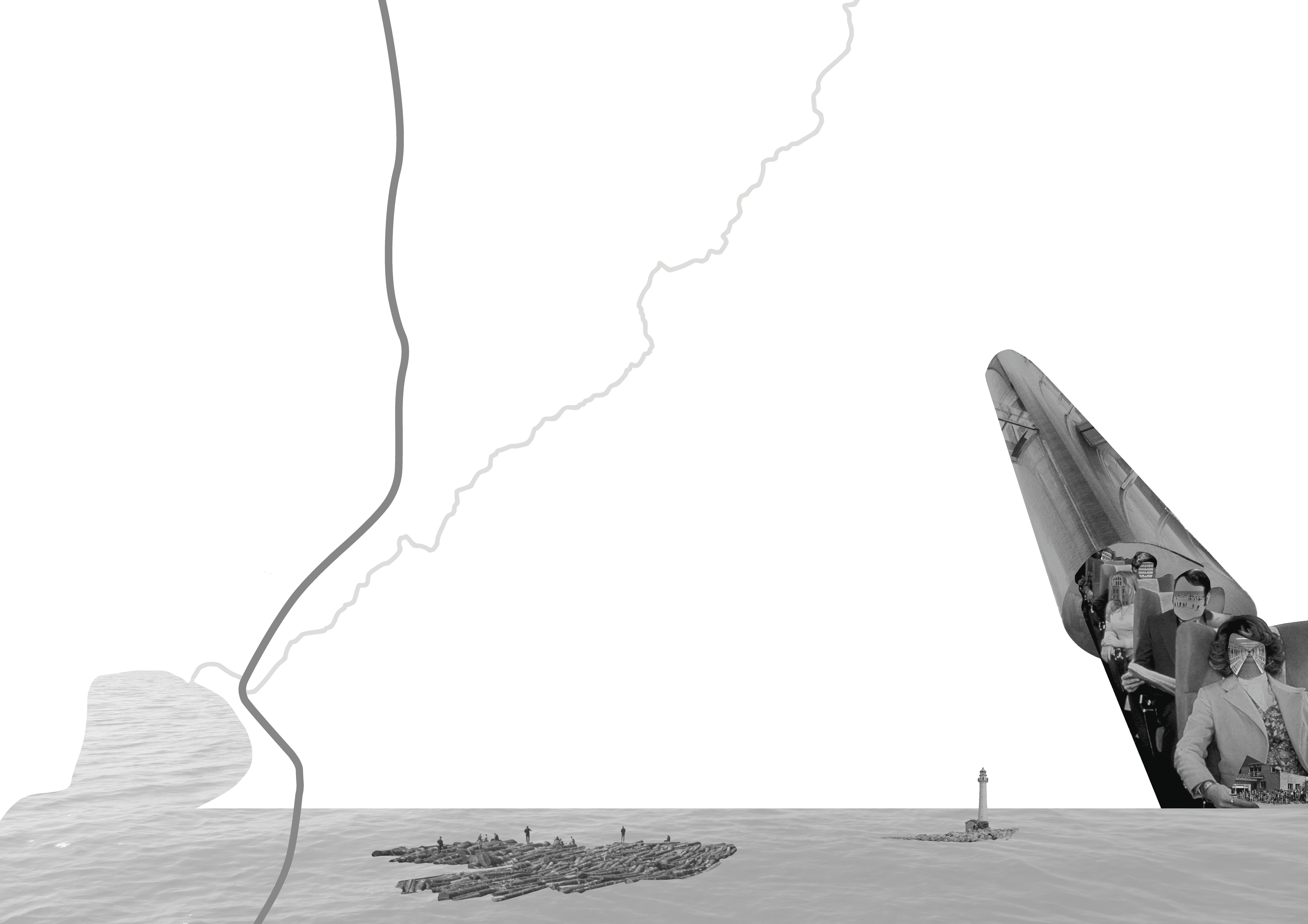 Decompressed Transition
Decompressed Transition
Paula Veidenbauma, Nora Soo and Jannik Kastrup
Pärnu is caught between diverging time regimes. In its role as a major spa and resort town, the city aims at slowing down the rhythm of life of the urban workforce. In parallel, the developments surrounding Rail Baltica will likely greatly compress this rhythm within Pärnu. The project examines frameworks of the relationship between those phenomena. It deals with instances of built and immaterial heritage and acts of preserving, especially the latter through shifting political systems. The float, emerging as the central piece of the project, can be interpreted as a gradient operating between Rail Baltica (a linear and high-velocity infrastructure), Pärnu’s leisure facilities and the open sea. It might function as a means of transportation while also exploring the possibility of non-arrival.
Visitors will be engaging with the project via a video installation, a float building workshop and a presentation. Float building instructions will be summarised in a booklet.
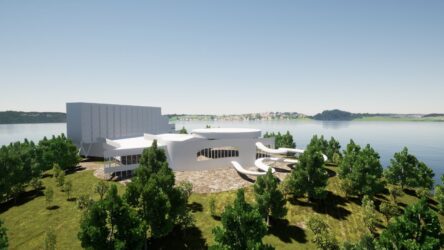 Tides of a Summer City
Tides of a Summer City
Khadeeja Farrukh, Anna Dzebliuk and Christian Hörner
The project explores possible resilient futures in Pärnu as a resort city. Showing how the “Summer City” developed historically, the video installation extrapolates empirical insights through Pärnu’s present-day reality into a future of constant flood emergency. The installation mobilizes futuristic renderings of possible resilient futures after a catastrophic flooding event to juxtapose and question the concepts of heritage, seasonality and resilience. We touch upon the inter-urban dependencies between Pärnu and Tallinn, manifesting historically, materially and spatially at the seaside of Estonia’s summer capital, securing the cities influx of holidaymakers during summer, but also causing issues of urban disenfranchisement of its residents, exploitation of its workers and destruction of coastal habitats of non-human residents. Looking into the future, it will no longer be possible to brush over the threat of flooding and the prospect of permanent crisis. The project “Tides of a Summer City” asks hypothetical questions, working towards a framework for understanding future challenges by following the changing historical tides of a summer city.
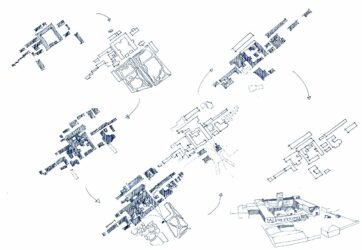
Fabricated Heritage – Interweaving the Past and Future of Sindi’s Kalevivabrik
Luca Riese Ritter, Paulina Schroeder and Augustas Lapinskas
The project explores the significance of Sindi´s industrial heritage. In recent decades, globalisation, deindustrialization, economic restructuring and industrial relocation have produced new landscapes within many European cities and towns – the post-industrial landscape. Deprived of their raison d’être, they are often regarded as spatially, socially, and semiotically empty places. In order to overcome this apparent ‘void’, the transformation of these post-industrial remnants into new uses is now an essential part of urban development practice.
Turning to industrial landscapes as potential carriers of cultural heritage ostensibly provides a framework for the continued management of these sites. Industrial heritage then becomes the bearer of local identity and creates uniqueness out of the former mundane.
The town of Sindi, a place essentially born from the settlement of a textile factory in the early 19th century, is in the process of discussing the reintegration of the material remains of industrial production into the town’s fabric which, since the closure of Kalevivabrik, the textile factory, has outgrown its original purpose. In this process of readjusting the relationship between factory-gone-ruin and the reorientation of the city, our project seeks to understand the potentials and conflicts that arise from industrial heritage, while taking a critical perspective at the practices of heritage preservation and its political implications. How and by whom is the town’s history preserved and remembered? Can there be a value of the material remains in the process of their decay? What is the role of heritage as a legal imperative? What role can the factory building play in the future of Sindi?
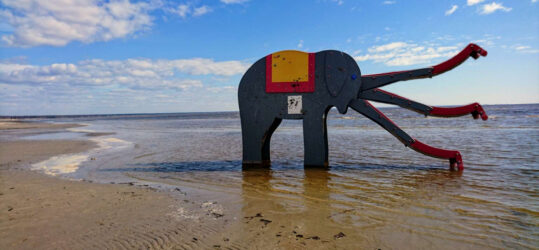 Tea, Coffee or Hot Water?: What to Make of the Boiler Room
Tea, Coffee or Hot Water?: What to Make of the Boiler Room
Kush Badhwar, Nabeel Imtiaz and Paul Simon
Drawing on the interest in the role of the educational institution Academia Non-Grata, elephants and other far-out references, the project explores junctions between the plan, the script and performance; preservation, the boiler room in the wider fabric of Pärnu; and the pitfalls and possibilities of experimental approaches to planning.
Plans for places chart a set of intentions that seek to influence the future of a place. Could the duration in which a plan is enacted be considered a performance?
Conversely, the script may be considered the plan for a performance. But despite the presence of a script, in performance, there can be room to manoeuvre in and around what is on the page, to improvise, to confront uncertainty and the yet to be known, to discover and learn from the process. Could such an approach also be applied to planning a city?
What might be discovered about prospective futures, preservation and other possibilities in Pärnu through the act of performance? Can performance and planning ever effectively speak to one another?
The possibilities of these questions are explored through three intertwined narratives of the boiler room, also the site of performance/presentation of the work: one in which the boiler room remains, structurally, as it is today; another in which the boiler room retains its shell but is appropriated over time; and, lastly in which the boiler room is razed and the site changes in purpose. Speculative fiction and alternative history take us through the boiler room and into the possible futures of the boiler room and the city of Pärnu.
“Preservation: Architecture, Nature and Politics” studio final presentations in Pärnu
Thursday 19 May, 2022
Preservation has achieved cultural significance as a lens through which various urban experts have come
to imagine what a socially and environmentally sound future might look like. As an approach, preservation has been applied to disparate phenomena ranging from historic neighbourhoods and natural environments to democracy and identity. This studio unfolded the formative concepts and historic moments that define contemporary understandings of preservation and applied these discussions to various typologies of architecture, urban fabric and the natural environment taking Pärnu and the wider region as a case study. In particular, the studio focused on the ways in which ideas, labour and design have intersected in the past to identify alternatives to the mainstream forms of preservation.
The studio culminates with a presentation of group projects that explore a variety of approaches to layers of heritage and questions of preservation in Pärnu and Sindi. Pärnu, the fourth largest city in Estonia, is struggling with the seemingly conflicting and contradictory notions of growth, shrinkage, preservation and destruction. Sindi, as a smaller town in the region, faces similar, but also additional challenges connected to its significant industrial heritage. Efforts to imagine and construct a vision for a city are also tied up with the tactile practices of preservation; set within specific administrative and management frameworks of maintenance, care, and neglect.
Despite intentions, prescriptive visions by the city and developers can serve to exacerbate inequalities through the various infrastructures, supply chains, policies and environmental conditions that extend well beyond the rigid borders of a city.
Can the concept of preservation open a discussion around a vision for Pärnu (and its hinterlands)
beginning not with growth and progress, but rather with repair, maintenance or even deterioration?
Student projects explore who gets to decide what is valuable, organise the preservation of things, and who then carries out the work. Negotiations about what should be preserved and what “good preservation” entails, are always contingent and contextual.
Projects:
-
- Decompressed Transition: Paula Veidenbauma, Nora Soo and Jannik Kastrup
- Tides of a Summer City: Khadeeja Farrukh, Anna Dzebliuk and Christian Hörner
- Fabricated Heritage – Interweaving the Past and Future of Sindi’s Kalevivabrik: Luca Riese Ritter, Paulina Schroeder and Augustas Lapinskas
- Tea, Coffee or Hot Water?: What to Make of the Boiler Room: Kush Badhwar, Nabeel Imtiaz and Paul Simon
 Decompressed Transition
Decompressed Transition
Paula Veidenbauma, Nora Soo and Jannik Kastrup
Pärnu is caught between diverging time regimes. In its role as a major spa and resort town, the city aims at slowing down the rhythm of life of the urban workforce. In parallel, the developments surrounding Rail Baltica will likely greatly compress this rhythm within Pärnu. The project examines frameworks of the relationship between those phenomena. It deals with instances of built and immaterial heritage and acts of preserving, especially the latter through shifting political systems. The float, emerging as the central piece of the project, can be interpreted as a gradient operating between Rail Baltica (a linear and high-velocity infrastructure), Pärnu’s leisure facilities and the open sea. It might function as a means of transportation while also exploring the possibility of non-arrival.
Visitors will be engaging with the project via a video installation, a float building workshop and a presentation. Float building instructions will be summarised in a booklet.
 Tides of a Summer City
Tides of a Summer City
Khadeeja Farrukh, Anna Dzebliuk and Christian Hörner
The project explores possible resilient futures in Pärnu as a resort city. Showing how the “Summer City” developed historically, the video installation extrapolates empirical insights through Pärnu’s present-day reality into a future of constant flood emergency. The installation mobilizes futuristic renderings of possible resilient futures after a catastrophic flooding event to juxtapose and question the concepts of heritage, seasonality and resilience. We touch upon the inter-urban dependencies between Pärnu and Tallinn, manifesting historically, materially and spatially at the seaside of Estonia’s summer capital, securing the cities influx of holidaymakers during summer, but also causing issues of urban disenfranchisement of its residents, exploitation of its workers and destruction of coastal habitats of non-human residents. Looking into the future, it will no longer be possible to brush over the threat of flooding and the prospect of permanent crisis. The project “Tides of a Summer City” asks hypothetical questions, working towards a framework for understanding future challenges by following the changing historical tides of a summer city.

Fabricated Heritage – Interweaving the Past and Future of Sindi’s Kalevivabrik
Luca Riese Ritter, Paulina Schroeder and Augustas Lapinskas
The project explores the significance of Sindi´s industrial heritage. In recent decades, globalisation, deindustrialization, economic restructuring and industrial relocation have produced new landscapes within many European cities and towns – the post-industrial landscape. Deprived of their raison d’être, they are often regarded as spatially, socially, and semiotically empty places. In order to overcome this apparent ‘void’, the transformation of these post-industrial remnants into new uses is now an essential part of urban development practice.
Turning to industrial landscapes as potential carriers of cultural heritage ostensibly provides a framework for the continued management of these sites. Industrial heritage then becomes the bearer of local identity and creates uniqueness out of the former mundane.
The town of Sindi, a place essentially born from the settlement of a textile factory in the early 19th century, is in the process of discussing the reintegration of the material remains of industrial production into the town’s fabric which, since the closure of Kalevivabrik, the textile factory, has outgrown its original purpose. In this process of readjusting the relationship between factory-gone-ruin and the reorientation of the city, our project seeks to understand the potentials and conflicts that arise from industrial heritage, while taking a critical perspective at the practices of heritage preservation and its political implications. How and by whom is the town’s history preserved and remembered? Can there be a value of the material remains in the process of their decay? What is the role of heritage as a legal imperative? What role can the factory building play in the future of Sindi?
 Tea, Coffee or Hot Water?: What to Make of the Boiler Room
Tea, Coffee or Hot Water?: What to Make of the Boiler Room
Kush Badhwar, Nabeel Imtiaz and Paul Simon
Drawing on the interest in the role of the educational institution Academia Non-Grata, elephants and other far-out references, the project explores junctions between the plan, the script and performance; preservation, the boiler room in the wider fabric of Pärnu; and the pitfalls and possibilities of experimental approaches to planning.
Plans for places chart a set of intentions that seek to influence the future of a place. Could the duration in which a plan is enacted be considered a performance?
Conversely, the script may be considered the plan for a performance. But despite the presence of a script, in performance, there can be room to manoeuvre in and around what is on the page, to improvise, to confront uncertainty and the yet to be known, to discover and learn from the process. Could such an approach also be applied to planning a city?
What might be discovered about prospective futures, preservation and other possibilities in Pärnu through the act of performance? Can performance and planning ever effectively speak to one another?
The possibilities of these questions are explored through three intertwined narratives of the boiler room, also the site of performance/presentation of the work: one in which the boiler room remains, structurally, as it is today; another in which the boiler room retains its shell but is appropriated over time; and, lastly in which the boiler room is razed and the site changes in purpose. Speculative fiction and alternative history take us through the boiler room and into the possible futures of the boiler room and the city of Pärnu.
10.03.2023
PhD VITAMIN 2023 – OPEN LECTURES AND CONSULTATIONS FOR DOCTORAL ASPIRANTS
PhD VITAMIN 2023 – OPEN LECTURES AND CONSULTATIONS FOR DOCTORAL ASPIRANTS
On March 10, PhD Vitamin will take place at the Estonian Academy of Arts, room A501.
PhD Vitamin aims to support and pave the way – and inspire artists with a research approach on their way to doctoral studies. The goal is to introduce artistic research and advise potential candidates for postgraduate studies in planning a doctoral thesis project. In a program consisting of public lectures and one-on-one consultations, artists and experts discuss their approach to artistic research and share individual advice.
Artists, designers, alumni of EKA and other creative universities, and graduate students interested in artistic research methods are invited to participate.
The event will be held in English.
To participate in a one-on-one consultation, please fill out the FORM.
A detailed consultation schedule will be sent to your email after registration. Be quick – the number of participants in consultations is limited!
In case of additional questions, please write to kati.saarits@artun.ee
PROGRAMME
10.03, Friday, room A501
11:30-12:00 Coffee and welcome
12:00-12:45 Jaana Kokko “Ideals and Practices”
12:45-13:30 Daniel Peltz “Rural Contextual Practice: Long-term, place-based research in a centre for Peripheral Study”
13:30-14.00 Taavet Jansen “Directing a hybrid event as practice-based research”
14:00-15:00 Moderated discussion: Daniel Peltz, Jaana Kokko, Taavet Jansen, Maarin Ektermann
15:00-15:30 break
15:30-18.15 Consultations with Daniel Peltz and Jaana Kokko
SPEAKERS:
Daniel Peltz is an artist and Professor of Time and Space Arts at the Finnish Academy of Fine Arts, Uniarts Helsinki. Prior to his professorship in Helsinki, Peltz served as Professor of Film/Animation/Video at the Rhode Island School of Design and co-founded the long-term, place-based, artistic-research project Rejmyre Art Lab’s Centre for Peripheral Studies, in Rejmyre, Sweden.
In his presentation “Rural Contextual Practice: Long-term, place-based research in a centre for Peripheral Study”, Peltz will provide an introduction to some of the strategies he has developed over the past 20 years of making works that emanate from engagements with specific communities and socio-cultural situations. The works intertwine multiple planes of existence from the ecological, to the social, to the financial, to the spiritual. There will be a particular focus on his epic, long-term engagement (going on 15 years) with the rural, glass-factory town of Rejmyre, Sweden.
Jaana Kokko is an artist, filmmaker, educator and occasional curator based in Helsinki. In her artistic practice she is now in the search of the common: the emergent need for the change that is starting from our practices of art making, learning and being together. Her practice-based Phd project for the Aalto University is thinking the political together with Hannah Arendt and others.
She is and has been teaching and lecturing f.ex. at the Academy of Fine Arts, Helsinki, Turku Art Academy, Estonian Academy of Arts in Tallinn, Latvian Academy of Arts, Riga and Akademie der Bildende Künste, Nürnberg. Her work has been exhibited f.ex. at the Lithuanian National Gallery in Vilnius, Latvian National Museum of Art in Riga, Tallinn Art Hall, Helsinki Art Hall, Moderna Museet in Stockholm, Joensuu Art Museum in Finland, Bucharest International Experimental Film Festival, Tampere Film Festival and Tokyo Media Art Festival.
Taavet Jansen is a multidisciplinary artist specializing in dance, choreography, sound, and video. His current research focuses on creating immersive experiences for online art events. He is pursuing his doctoral degree at EKA and working on enhancing the elektron.art platform for online art events. His project promises to bring fresh perspectives to the digital creative sphere and contribute to the performing arts community.
Maarin Ektermann is an art worker, based in Tallinn, Estonia, who is working on intersections between contemporary art and more-or-less experimental education. Recent projects have included “Artists in Collections” (w M-A Talvistu, 2017 – ), re-imagining social rituals of the cultural field under RESKRIPT (w H. Hütt, 2019 – ), proposal for fair fee system for Estonian art scene (w A. Triisberg, 2019 – ) and since 2020 running a new educational platform proloogkool (“school of prologues”). On a daily basis she works as a Head of Center for General Theory Subjects at Estonian Art Academy and teaches there courses on art history of 20th century, self-organized practices and on art criticism.
PhD VITAMIN 2023 – OPEN LECTURES AND CONSULTATIONS FOR DOCTORAL ASPIRANTS
Friday 10 March, 2023
PhD VITAMIN 2023 – OPEN LECTURES AND CONSULTATIONS FOR DOCTORAL ASPIRANTS
On March 10, PhD Vitamin will take place at the Estonian Academy of Arts, room A501.
PhD Vitamin aims to support and pave the way – and inspire artists with a research approach on their way to doctoral studies. The goal is to introduce artistic research and advise potential candidates for postgraduate studies in planning a doctoral thesis project. In a program consisting of public lectures and one-on-one consultations, artists and experts discuss their approach to artistic research and share individual advice.
Artists, designers, alumni of EKA and other creative universities, and graduate students interested in artistic research methods are invited to participate.
The event will be held in English.
To participate in a one-on-one consultation, please fill out the FORM.
A detailed consultation schedule will be sent to your email after registration. Be quick – the number of participants in consultations is limited!
In case of additional questions, please write to kati.saarits@artun.ee
PROGRAMME
10.03, Friday, room A501
11:30-12:00 Coffee and welcome
12:00-12:45 Jaana Kokko “Ideals and Practices”
12:45-13:30 Daniel Peltz “Rural Contextual Practice: Long-term, place-based research in a centre for Peripheral Study”
13:30-14.00 Taavet Jansen “Directing a hybrid event as practice-based research”
14:00-15:00 Moderated discussion: Daniel Peltz, Jaana Kokko, Taavet Jansen, Maarin Ektermann
15:00-15:30 break
15:30-18.15 Consultations with Daniel Peltz and Jaana Kokko
SPEAKERS:
Daniel Peltz is an artist and Professor of Time and Space Arts at the Finnish Academy of Fine Arts, Uniarts Helsinki. Prior to his professorship in Helsinki, Peltz served as Professor of Film/Animation/Video at the Rhode Island School of Design and co-founded the long-term, place-based, artistic-research project Rejmyre Art Lab’s Centre for Peripheral Studies, in Rejmyre, Sweden.
In his presentation “Rural Contextual Practice: Long-term, place-based research in a centre for Peripheral Study”, Peltz will provide an introduction to some of the strategies he has developed over the past 20 years of making works that emanate from engagements with specific communities and socio-cultural situations. The works intertwine multiple planes of existence from the ecological, to the social, to the financial, to the spiritual. There will be a particular focus on his epic, long-term engagement (going on 15 years) with the rural, glass-factory town of Rejmyre, Sweden.
Jaana Kokko is an artist, filmmaker, educator and occasional curator based in Helsinki. In her artistic practice she is now in the search of the common: the emergent need for the change that is starting from our practices of art making, learning and being together. Her practice-based Phd project for the Aalto University is thinking the political together with Hannah Arendt and others.
She is and has been teaching and lecturing f.ex. at the Academy of Fine Arts, Helsinki, Turku Art Academy, Estonian Academy of Arts in Tallinn, Latvian Academy of Arts, Riga and Akademie der Bildende Künste, Nürnberg. Her work has been exhibited f.ex. at the Lithuanian National Gallery in Vilnius, Latvian National Museum of Art in Riga, Tallinn Art Hall, Helsinki Art Hall, Moderna Museet in Stockholm, Joensuu Art Museum in Finland, Bucharest International Experimental Film Festival, Tampere Film Festival and Tokyo Media Art Festival.
Taavet Jansen is a multidisciplinary artist specializing in dance, choreography, sound, and video. His current research focuses on creating immersive experiences for online art events. He is pursuing his doctoral degree at EKA and working on enhancing the elektron.art platform for online art events. His project promises to bring fresh perspectives to the digital creative sphere and contribute to the performing arts community.
Maarin Ektermann is an art worker, based in Tallinn, Estonia, who is working on intersections between contemporary art and more-or-less experimental education. Recent projects have included “Artists in Collections” (w M-A Talvistu, 2017 – ), re-imagining social rituals of the cultural field under RESKRIPT (w H. Hütt, 2019 – ), proposal for fair fee system for Estonian art scene (w A. Triisberg, 2019 – ) and since 2020 running a new educational platform proloogkool (“school of prologues”). On a daily basis she works as a Head of Center for General Theory Subjects at Estonian Art Academy and teaches there courses on art history of 20th century, self-organized practices and on art criticism.


